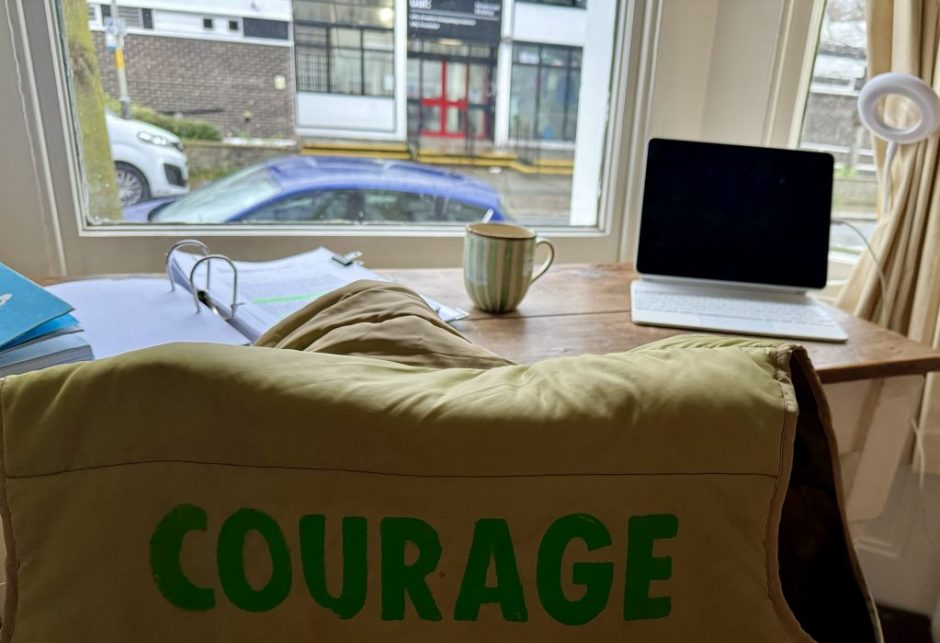Playing catch up… spinning plates read Mapping the Margins shortly after watching Chay Brown on Disability & Gender speak about empowering a community by talking out loud…. I felt uncomfortable just reading the title, I started to highlight and make notes but had to turn to a red pen to make sense of how and where I was triggered… My recent lived experience has meant that my privileged walk has taken a different path. A proud survivor of domestic abuse, I feel privileged that my experience of surviving and that of the panel of experts by experience survivors that I sit on has been very different from that of the people referenced in the paper. Like Chay Brown said by talking about lived experiences we can improve and change them for others. UAL has provided a safe space to do this and enabled me to study with the support of the disability team. For the time being I’m going to keep my eyes peeled for other papers on a similar theme and potentially at a later date look at unpacking them in much more detail. Domestic Violence can happen to anyone.
Mapping the Margins: Intersectionality, Identity Politics, and Violence against Women of Color
Author(s): Kimberle Crenshaw
Source: Stanford Law Review, Jul., 1991, Vol. 43, No. 6 (Jul., 1991), pp. 1241-1299
Published by: Stanford Law Review


Really unsettled by this paper, I dug a little deeper and felt much more at ease after watching Crenshaw Ted talk on intersectionality recorded later in 2016, the clearly defined description and the recognition that we need to vocalise the problem is the beginning of finding solutions resonated with me and I was metaphorically able to join the cacophony of sound. I noticed similarities between cPTSD and intersectionality which I am looking forward to exploring.



